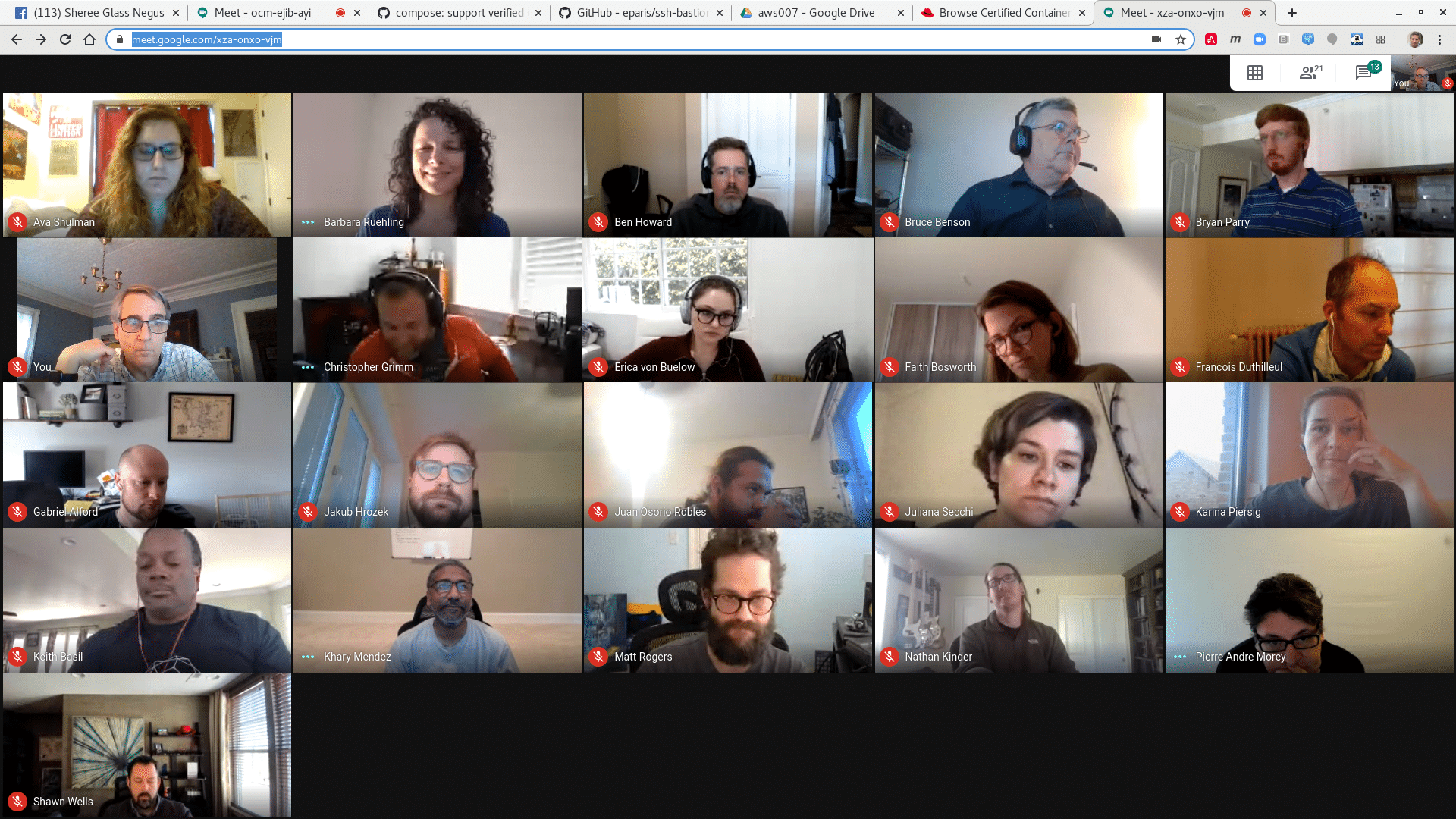OpenShift Security Guide: our first virtual Book Sprint experience
In April we facilitated our first fully virtual Book Sprint with Red Hat, and we are thrilled to share that OpenShift Security Guide was released for Kindle on May 8th on Amazon ,where the book is already #1 new release and #13 in the system administration ranks! Keith Basil, one of the participants and organisers, shared with us:
Shawn Wells and I were the only team members that had participated previously in a book sprint and we knew the challenge was ahead of us. We also knew that if any team could do it, it was going to be a Red Hat team. The key to success with this model is experienced and trusted facilitation, and excellent logistical support. Our Book Sprint facilitation team came through with flying colors.
You can find more details on Keith Basil’s impression on the process in his article.
Our dates for this Book Sprint with Red Hat – USA based open source software company – were already confirmed for April, when Covid-19 made travel impossible. We had already done a Book Sprint with some Red Hatters in the past, and the organisers agreed to try out a fully online Book Sprint experience. We developed different options of virtual processes with different time frames, keeping in mind some crucial differences between the onsite and online environments: different timezones, people’s daily responsibilities, being at home and the demands that come with it, and levels of productivity, to name a few.

“Red hatters”, the team of authors, plus Keith Basil, who didn’t make it into the first collage.
The process was mapped out well, and the group was very committed, resulting in a very comprehensive resource. Regarding the content of the book, Keith Basil shared:
The OpenShift Security Guide was created to help those in cloud infrastructure and security engineering roles address the many security challenges facing them. Cloud security is complex, and Red Hat understands that users need more than just guidance in technical system configurations. (…) While the book speaks to OpenShift from a holistic infrastructure perspective, it does cover areas that application developers and reliability engineers may find valuable. (…) Build and runtime security features are discussed, and advantages of a secure container baseline image are covered as well.
The Red Hat Book Sprint group was unusually big, 19 participants, and time stretches differently in the virtual world. The quality of attention is something we were conscious about, even if the participants are used to working long hours in front of a screen. To make things smoother, we invited our facilitator Faith Bosworth, who is also a Mindfulness and meditation teacher at @calmandconnect, to start every session with a Mindfulness exercise. The practice helped many of the participants to “arrive” in the room and feel more grounded with the project and the tasks for the hours ahead. Read more about the learnings about virtual Book Sprints here.

Full room with all participants and Book Sprints team…
This Book Sprint contemplated a process of 1 week synchronous time followed by 1 week of gap and some homework, then another week of synchronous meetings with a smaller team of participants, less than half of the initial group. This second group was responsible for revisions and tackling missing content, and some performed the task of target readers, going through the entire text to make sure the book had coherence and no gaps.
In the beginning of March, same time as the gravity of the COVID-19 crisis started to increase, we did a Book Sprint in Berlin with participants from Europe. One of the authors coming from Sweden was advised to cancel his travels, so in that occasion we had a hybrid Book Sprint, that is, facilitating the participants onsite along with facilitating one participant online. The experience gave us a glimpse of something we couldn’t anticipate back then, that in only one month time we would all be quarantined in our homes and sprinting 100% virtually.
We are very thankful to Red Hat for the trust in being our first “guinea pigs” when it comes to adapting our method of facilitation to virtual formats. We are all satisfied with the result of this book and with so many learnings we got from this experience.
See more photos and videos of this Book Sprint on flickr.
